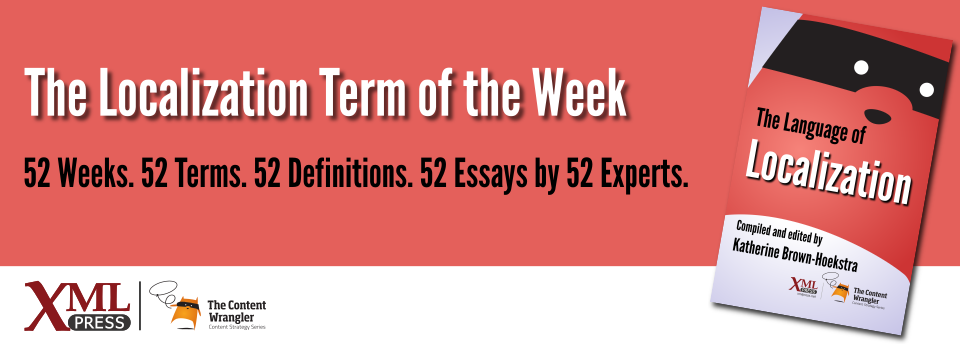What is it?
A process by which content – online, in print, in software, or in other types of media – is made world ready, so it can be localized with minimal rewriting, redesigning, or re-engineering.
Why is it important?
Helps organizations save significant time and resources by creating world-ready architecture and content before moving on to localization and translation.
Why does a technical communicator need to know this?
Internationalization, sometimes abbreviated as i18n, is the first stage toward taking software, websites, and other content global. Before localizing anything, it’s important to first take a step back and ask: Is it world ready?
Internationalizing text means creating a universal English source text in which sentences are optimized for translation. Edits can include removing culturally specific metaphors (for example, A home run offer!
), removing humor (which rarely translates well), and keeping sentences short and declarative.
When designing websites or software, internationalization entails creating an architecture and design templates that can be supported across all locales with no engineering changes. Requirements can include support for the world’s many scripts, currencies, date, measurement display formats, and address formats. The most efficient global templates often avoid embedding text within images because such images must be manually edited for each language supported.
Templates must be flexible enough to allow for text expansion – text strings often double in length when translating from English into languages such as Dutch, German, or Russian. Also, images and icons in global templates must be carefully reviewed to ensure they are globally relevant and usable.
In their rush to go global, companies often overlook internationalization. As a consequence, a website or app created for one locale often must be redesigned to support a different locale. Internationalization ensures that companies can avoid that extra work and go global more efficiently[Yunker 2017][W3C Internationalization].
References
- [Yunker 2017] Think Outside the Country: A Guide to Going Global and Succeeding in the Translation Economy: Yunker, John. (2017) John Yunker’s latest book on globalization and internationalization.
- [W3C Internationalization] W3C Internationalization Activity: The latest from the W3C Internationalization Committee.

